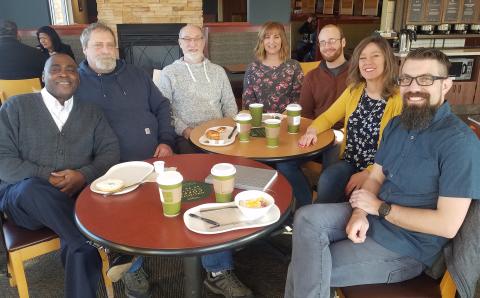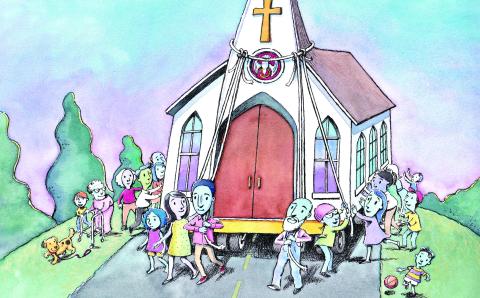During the past few years in my role as a ventilation specialist for dairy barns, I have talked with dairy farmers around the globe. I’ve noticed that few topics get dairy farmers talking more than that of sustainable farming.
It’s been a hot-button topic for a few years now. Dairy farmers have a lot to say about it, but are not often given a seat at the table when discussions or debates about sustainable dairy farming occur. Often it is scientists, politicians, and activists who appear at these events. They speak about dairy farming, but they rarely speak for dairy farmers.
Merriam-Webster’s online dictionary defines “sustainable” as “of, relating to, or being a method of harvesting or using a resource so that the resource is not depleted or permanently damaged” or “maintained at length without interruption or weakening.”
But how does this apply to dairy farmers as they care for their animals? How does this make a difference for farm operators milking their cows at 3 a.m.? Are we any further ahead in our thought process around sustainable dairy farming and what it means?
Many of today’s discussions around sustainability are focused on environmental sustainability, but I think there is more to be unpacked from the definition of sustainability. Most of us would agree that God calls farmers to be stewards of creation and to strive for environmental sustainability. But what about financial sustainability? Shouldn’t farmers also make sure their farms are financially viable? What about operating the farm with a mind to the future so that in 50 years the farm still exists to provide income to the operators and food for the world?
All farmers have been given a special task by God to feed the world. Dairy farmers are no exception. They are living in the promise God gave in Genesis 9:3: “Everything that lives and moves about will be food for you. Just as I gave you the green plants, I now give you everything.” Farming was one of the first tasks assigned to humans in the Garden of Eden (Gen. 2:15). We are reminded throughout the psalms that it is God who created the world, and it is God alone who makes the grass grow. We are but stewards of God’s great creation (Ps. 104). Psalm 24 reminds us directly that the earth and everything in it belong to God. Farmers have a special daily calling to care for God’s creation. Working with the land and animals, farmers are reminded to “work at it with all your heart, as working for the Lord” (Col. 3:23).
It must be noted that it is not only farmers who are focused on the sustainability of the dairy industry. Consumers are asking questions about where the products they purchase are coming from. They are looking for transparency from their food producers. They want quality products produced in sustainable ways. These consumer demands are pushing dairy farmers to look at innovative agricultural technologies.
But a dairy farmer must also consider how new technology will affect the balance sheet. Dairy farms exist to make a profit, and new technology cannot be adopted if it does not make financial sense. Risking the future of one’s farm to add new technology is not a wise move. Many dairy farms are still family businesses and will be passed on to the next generation. Dairy farms must be financially sustainable to continue to exist.
While the picturesque family farms of the 1950s have all but disappeared, there still remains a draw to the simple lifestyle associated with farming. Keeping that way of life alive and well is often a high priority for many dairy operators. Many farms give tours and talk about what they do. Dairy farmers are proud of their jobs and proud of what they produce. They are proud to be on the front lines of technological advancement and the fight for sustainability. But all choices and changes must be weighed against how they might change the farmer’s lifestyle.
Changes are happening all across dairy farms in the name of sustainability. One example is how waste is handled. Traditionally a dairy farm’s waste is spread onto the fields as an effective fertilizer. But if this is done incorrectly, excess nitrogen and phosphates can damage the local groundwater and environment. Some farms now use dryers to extract moisture from the waste. The dry manure solids are then turned into bedding material for the animals. Other farmers use digesters to compost manure waste and use the methane to produce electricity. While this technology is still in its infancy, there is work being done to bring it to the mainstream.
New technology is also rapidly changing how dairy cows are milked. Many farms are looking at robotic milking systems. Not only are these systems more labor-efficient, but studies have shown them to be more comfortable and less stressful for the animals.
Technology has also changed how dairy farmers house their animals. Farmers can adapt much of their equipment to be more energy-efficient, using tools such as variable frequency drives. Decreasing electricity consumption not only reduces costs, but also allows dairy operations to reduce the amount of resources they use. The University of Minnesota Extension Dairy Team notes, “Dairy farms will continue to become more automated with sensors and robotics. Integrated sensors and the use of artificial intelligence are rapidly developing. Sensors will be integrated in a cloud-based system with farm-based algorithms that will be used to monitor and improve crop and soil health, animal welfare, and water and air quality.”
So what does all of this mean for you and me as we stand in the dairy aisle staring at the vast assortment of cheeses and yogurts? What does this mean for us as we pour milk into our breakfast cereal or add cream to our post-church coffee? We can start by being thankful for the dairy industry and the changes it is making to become more sustainable. We can be thankful to know that the dairy products we consume today are made by farmers who choose to live out sustainability every day.
We can also continue to call for more progress on this front. Consumers can respectfully and responsibly remind farmers of the calling they have received from God. But most of all, consumers must switch from talking about dairy farmers to talking with them.
About the Author
Dan Veeneman is a lifelong learner, avid reader, and enjoys writing almost as much as he enjoys a cup of good coffee. He lives in St. Albert, Alberta with his loving and supportive wife and three pre-teen children. They worship at Sturgeon Valley Baptist Church.








